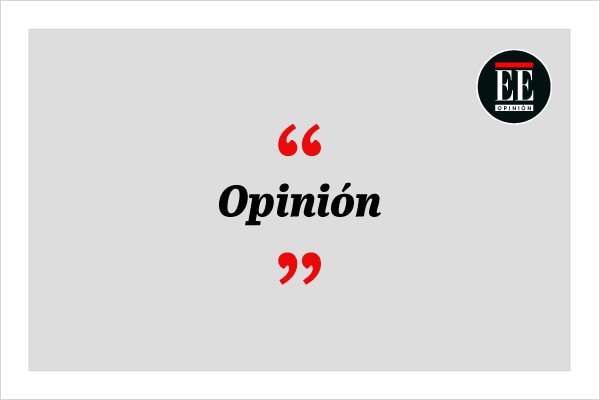A month ago The construction process is closed subordinate Open Science Recommendations United Nations Educational, Scientific and Cultural Organization (UNESCO); The next step is to present it to the Organization’s General Conference in November for approval by member states. the document, which brings together the global consensus on open science, and embodied a Multisectoral Consultation Process It will establish the first global standard for framing this issue.
How Independent expert invited by UNESCO For this building process, I leave with a bittersweet feeling. The discussion was in keeping with one of the most important human challenges to science in recent decades, a pandemic, and this made it resonate but not as often as I would have liked.
The COVID-19 pandemic vaccine is starting to see the light at the end of the tunnel across Application of open science logic. The intense scientific collaboration meant that by sharing research data, dozens of vaccines were produced in record time. However, at the access point shut down with a miserable race to get a vaccine patent and your earnings. UNESCO’s recommendation in this regard explains the tension and shows how the logic of open science today is no longer behind the scenes, hidden, but worthy of –As mentioned in the recommendationsGovernments allocate 1% of GDP. Regional and disciplinary tensions over this issue were noted in the process.
The recommendation, once accepted, will say that open science is “a comprehensive concept that brings together different movements and practices with the goal of making multilingual scientific knowledge available, accessible and reusable for all, to increase scientific collaboration and information exchange in order to benefit science and society, and open up the Assessment and transfer of scientific knowledge to social actors outside the traditional scientific community It includes all scientific disciplines and aspects of academic practice, including basic and applied sciences, natural and social sciences and humanities, and is based on the following basic pillars: open scientific knowledge, open scientific infrastructures, scientific communication, and participation In the open dialogue between social actors and open dialogue with other knowledge systems.
While I succumb to consensus, I don’t do it with pain, I know it’s an important step for those of us who believe in the value of collaboration – something that is possible today on an unprecedented scale thanks to digital technologies. I have the thorn in my mind that the recommendation did not capitalize on the urgency of the pandemic to provide a response based on open science, recognizing that intellectual property is often more of a barrier than a starting point.
What the UNESCO recommendations in the field of open science do is to propose a roadmap to mobilize the agenda locally, asking, for example, that funding bodies and scientific institutions promote openness, that open science be the basis for strengthening scientific values, but also that it promotes democratization Knowledge.
Another important aspect of the recommendation is that there is broad consensus on open access and commitment to open data in science. These aspects are well developed in the document, but I appreciate that the text is explicit in stating that it should go further.
I explain to them.
The value of this document is that it can make future public open science policies enhance the opening of the research cycle as a whole, promote participatory science, and open spaces to talk about innovation and newer aspects of open science, such as the need for exceptions to copyright for data mining or the development of funding mechanisms and approaches for citizen labs or spaces to experiment with open infrastructure (Unlock devices). Again, the recommendations can be a roadmap for talking about the science and its results common goods (Those that have universal access, are democratically managed, continue to be used over time and are collectively owned).
On the other hand, the analysis and implementation of this recommendation in its rationale should be transferred to policy decisions in general. In other words, thinking about open science should help us ask difficult questions such as questioning our country’s current position on the COVID-19 vaccine. Colombia has traditionally maintained an extreme position to protect intellectual property, and in this it has maintained the same position, it does not support the proposal of South Africa and India to suspend such protection within the World Trade Organization (WTO) as a possible response to a health crisis.
This exception goes beyond patenting vaccines, because its purpose is to promote technology transfer to improve countries’ response and this includes increasing the capacity to produce vaccines in regions – such as Colombia – that have not achieved sufficient availability for their populations, but also making protection more flexible in order to provide a comprehensive response. The use of flexibility in the intellectual property system is one of the mechanisms that open science rescues as a valid and necessary tool to protect the public interest in the development of science.
In this case, it is not that Colombia is against it, but at one point asked for more evidence and is now silent – attention, this is better than against it, but it is still contradictory if we consider that it is one of the countries with More deaths from disease relative to its population– He maintains this position even when countries like the United States have already reevaluated it. The WTO round of negotiations returned this week and Colombia remains silent.
Together with organizations from the Global South, from Charisma, where I work, we extend a new call to our governments Prioritizing people’s health and rights over intellectual property rights and profitsWe ask you to support the proposal that the WTO is analyzing.

“Social media evangelist. Student. Reader. Troublemaker. Typical introvert.”

:quality(85)/cloudfront-us-east-1.images.arcpublishing.com/infobae/TEQF6EONZRFGLLLDIDD4L2O4EE.jpg)

:quality(75)/cloudfront-us-east-1.images.arcpublishing.com/elcomercio/XU32LRAEZFDDPNVHLFU3CKVBYY.jpg)



More Stories
Venezuela ranks fourth in female leadership in science and technology in Latin America
In Portuguesa and Sucre they explore the wonderful world of science
The university court overturns the expulsion of two teachers and a chemical sciences student